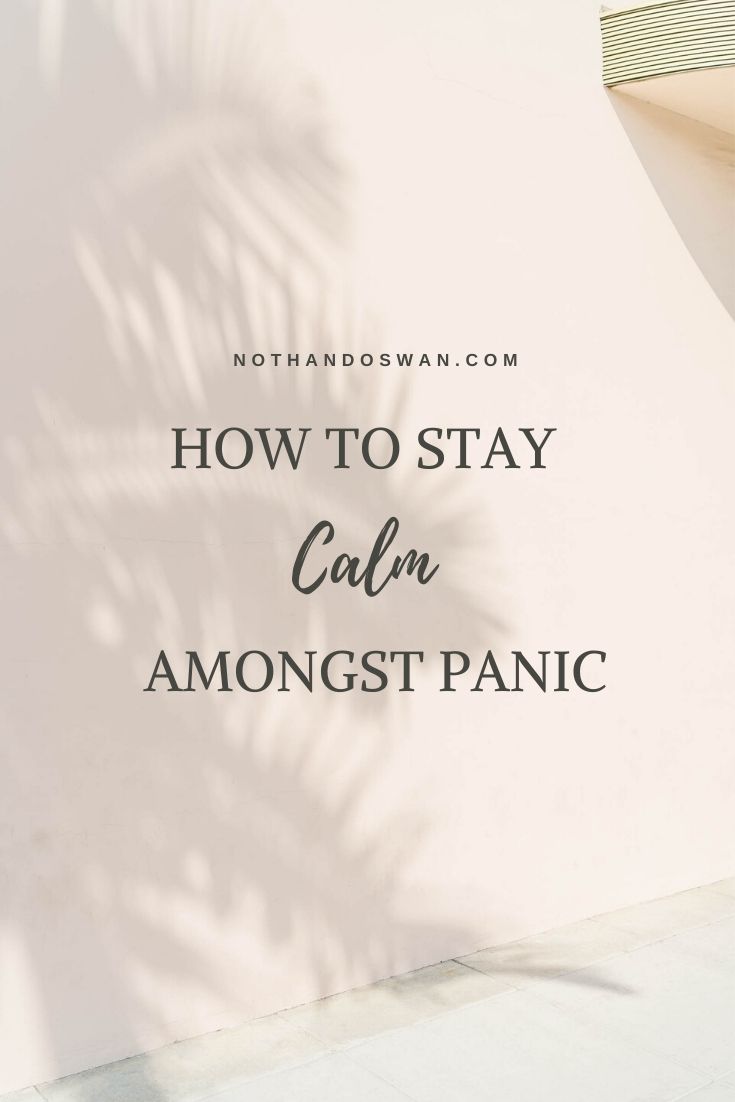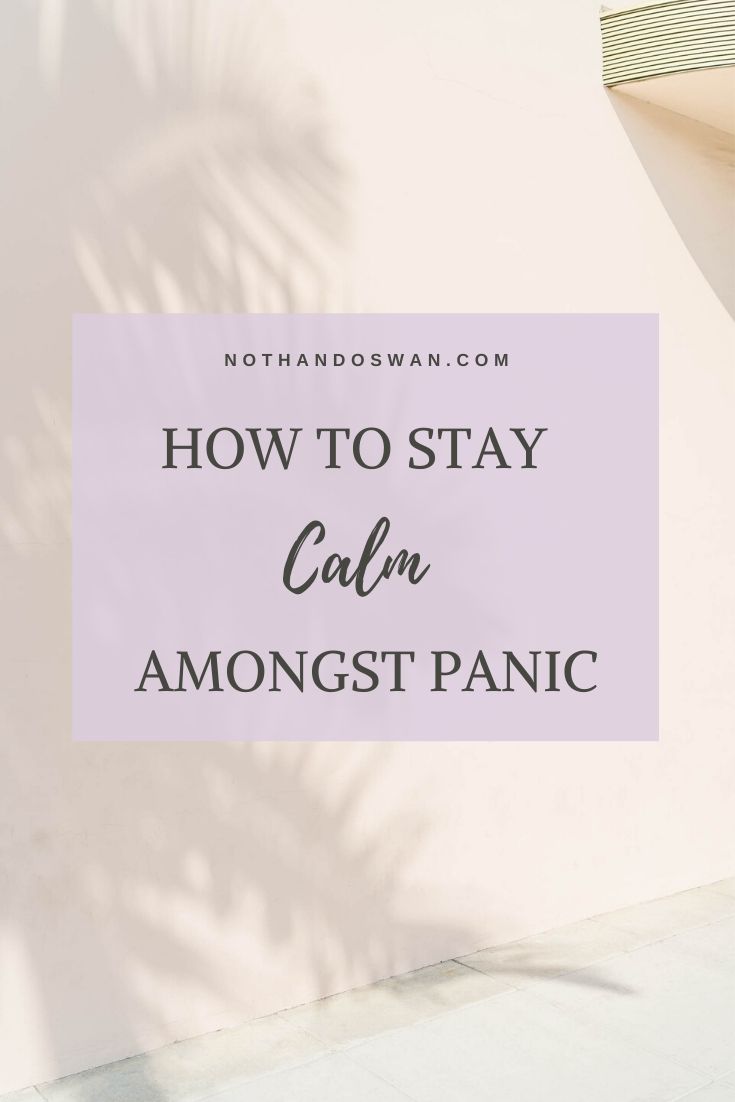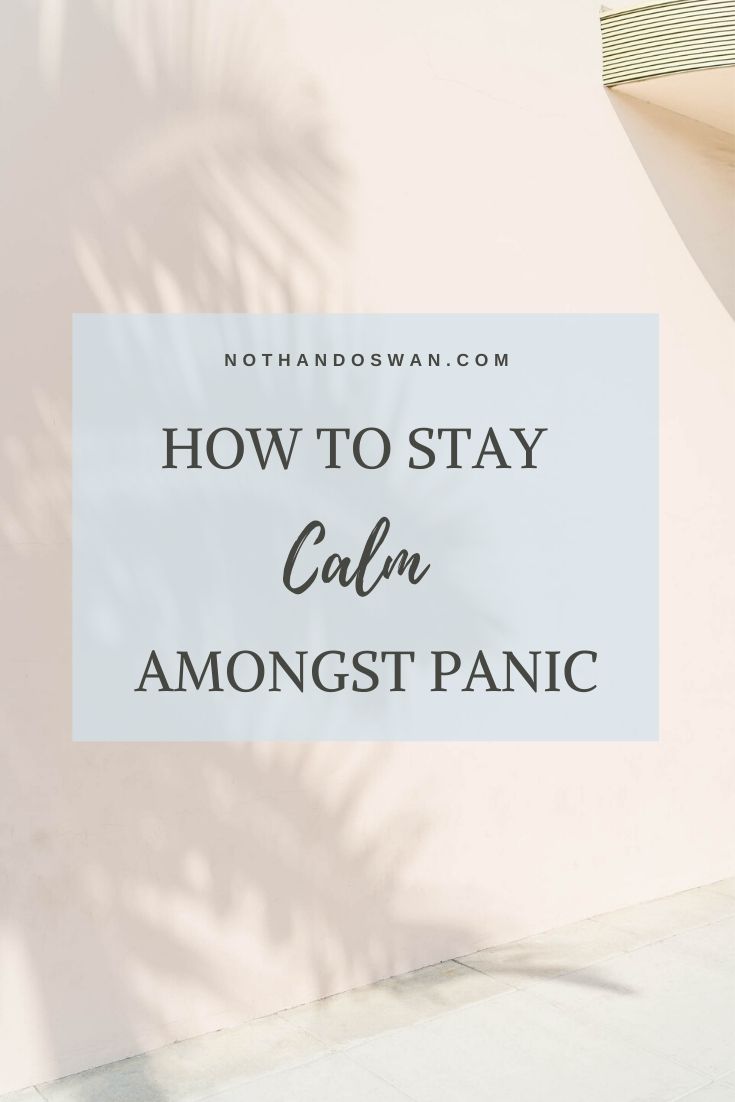
- Recognize the trigger and accept it for what it is
- Identify what your role is
- Root firmly into your support systems
- Refuse to take on other people’s drama
- Set boundaries to protect your peace
- Capitalize on the opportunity for growth
These were the words that sealed my fate. The prime minister said,
“Let me be clear. If you are abroad, it is time for you to come home.”
And at that moment, I had to get real. I could not stay in Brazil any longer, no matter how beautiful the sunshine was. I couldn’t do international rotations in the middle of a pandemic. And I definitely couldn’t sip caipirinhas or go to barbeques with my colleagues anymore. Instead, I had to leave the operating room and fly home.
The next minutes and hours were full of stress as I made decisions and moved quickly. I had to get home before borders closed and flights got cancelled.
If your heart rate just went up, it’s cool. In this post, we’re talking about how to remain calm amongst panic because we have to take care of ourselves during rushed times and always.
First of all, in urgent situations, we need to recognize the trigger and accept it for what it is.
There is no room for semantics, for drama, or for arguing. And most importantly, there is no room for denial.
That’s where I was stuck. In the days leading up to Trudeau’s announcement, I tried to reason with myself that we’d already booked flights and accommodation in Florianópolis, a beautiful beach city in Brazil. Plus, we’d worked so hard to confirm our medical rotation. We should at least stay for that.
Wrong. You see, I was so desperate to continue learning in Brazil that I was hoping to ignore that this was a pandemic. I was willing to guess that my chances of being infected with coronavirus in Florianópolis were lower than in Toronto.
But it wasn’t actually about me. It was about the principles of emergency preparedness and the protocols that we use to control the spread of disease. And I had to accept that.
When everyone around you is panicking, the first thing to do is recognize what’s really going on and accept that you are in extraordinary times. And extraordinary times require logic, action, and compassion. The sooner you can accept this, the sooner you can move past panic and into a more productive space.
And then you can identify what your role is.
What do you need to do to get past this? What is the most helpful thought – and thus behaviour – in this set of circumstances? Listen, you don’t have to solve the entire problem, you don’t have to save the world, but you do have to take the next best step… immediately.
When people are panicked and worried, ask yourself what you should be doing to move things forward. Use the adrenaline of the moment to move you in the right direction because so many of us get scared and move in the wrong one.
That Monday afternoon when the announcement was made, we stepped away from our afternoon of mini-procedures and rushed home to pack. We didn’t even have time to say goodbye to our preceptor because he’d already scrubbed in. My colleague and I decided right then and there that we were getting on the next available flight.
That’s what we did. But on the flip side, I want you to rest assured that sometimes, the next best action is to do nothing. To stay home. To end that conversation. To walk away.
To practice physical distancing.
Sometimes, you get to play that part in the movie where someone rushes to the airport before it’s too late. And sometimes, being a hero means staying silent and being invisible.
So once you’ve decided what you need to do, you’re going to need help. You need to know who your people are and where your faith lies.
In times like these, root firmly into your support systems.
Equally important: be grateful that they exist.
If you have a safe home, soap and running water, and enough money to buy food (not toilet paper), then you are ahead of the game. In the cruelest of ways, urgent times stretch a societal fabric that is already too thin. Threads that are already fraying with the weight of poverty may snap, and we can no longer ignore the holes in shoes that are forced to walk through blizzards.
Hold on to your family. Your friends. Your faith. Your passions. Hold on to what you said you were all about before this started, and take a moment to reflect on how you can recommit to that. This is what matters when nothing else is certain.
So-and-so’s opinion does not. What Pam is doing is inconsequential. Your Facebook friend’s opinions shouldn’t speak louder than your own.
In other words, refuse to take on other people’s drama.
I would argue that this is a better time than ever to distance yourself from the nonsense.
Because let’s be real: we are inundated with trivial “news” on a daily basis, and we don’t need that baseline level of anxiety right now. We are working through some big things, and we don’t have time for the little ones. Again, do not take on other people’s drama, and do not feel the need to explain why you’re not here for it.
You can protect your peace without protecting other people’s feelings. It’s okay, trust me, they will be fine.
To that end, I think it’s important to remember that when we set up boundaries, we don’t have to be loud about them. You can say “no,” and leave it at that. You can silence a certain friend’s posts. You can check email once a day instead of several times. And you can turn off the live television coverage once you realize the same questions are being asked and the same scripts are being repeated.
This is what’s working well for me. But I want you to look at what’s causing you more stress than calm and set some boundaries around those things.
As I frantically packed things into my suitcase, I decided that my decision to fly home that night was not up for debate. My mom (my 24/7 superhero) got a flight from São Paulo to Atlanta and then to Toronto that left at 9:50 pm.
But someone else had gotten us a flight with no stops for the very next day. And even though people were worried that I’d be stuck trying to make the connection, I had made up my mind.
Yes, it might take me longer to catch the connection because of new screening processes, yes I had to leave things behind at the AirBnB because I was so rushed, but that’s what I decided to do. I was catching a flight in less than six hours, not the next day.
So two hours later, we were back in an Uber headed straight to the airport. We left behind our extra weight and processed what was happening in the car as the sky got darker and the clouds spat rain drops down at us.
At check-in, my bag was just under the weight limit. Security was quick. The plane left on time. My connection was smooth. And the next plane left on time too. We stayed calm. We stayed safe, and we got home.
But not only did I leave physical weight behind, I also left whatever fear and panic I had in those few hours leading up to the flight.
If you can get just a few moments of calm, you can capitalize on this time to grow.
You can acknowledge what strengths you have that are getting you by. You can re-evaluate what you’ve been prioritizing. You can reclaim your time in a way that is helpful and restorative to you.
As I self-isolate, I think about my colleagues in medicine who are phenomenal beings, and I think about how I’d like to shape my early career. As I stay at home, I am writing. I am practicing Portuguese and Spanish. And I am daring to dream about where I’d like to travel when that is once again an option.
As I self-isolate, I am looking ahead at how I can love on everyone just a little bit more.
And I’m hoping you do the same; that you prioritize yourself and your passions. That you identify your gifts because we need them. And more than ever, I hope that you preserve a sliver of peace for yourself so that you can one day look back and thank yourself for what you chose to do today.
If you’re ready to focus on your passions and eliminate your distractions, this free PDF will help you do that:
Because the thing about panic is that you cannot grow within it. You cannot be your best self or live your most fulfilling life while you’re in survival mode. But when you process, when you act, when you heal, that’s when the magic happens. That’s when fear stops spreading.
How to Stay Calm Amongst Panic:
- Recognize the trigger and accept it for what it is
- Identify what your role is
- Root firmly into your support systems
- Refuse to take on other people’s drama
- Set boundaries to protect your peace
- Capitalize on the opportunity for growth

